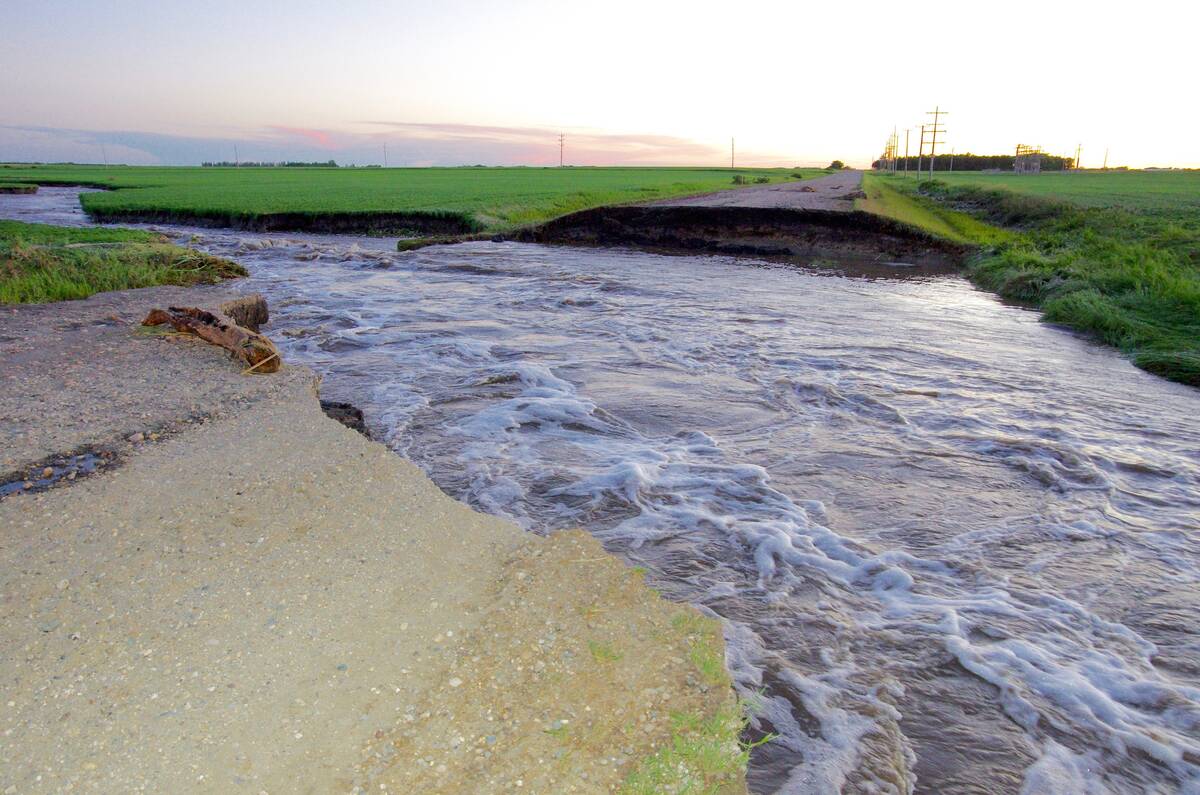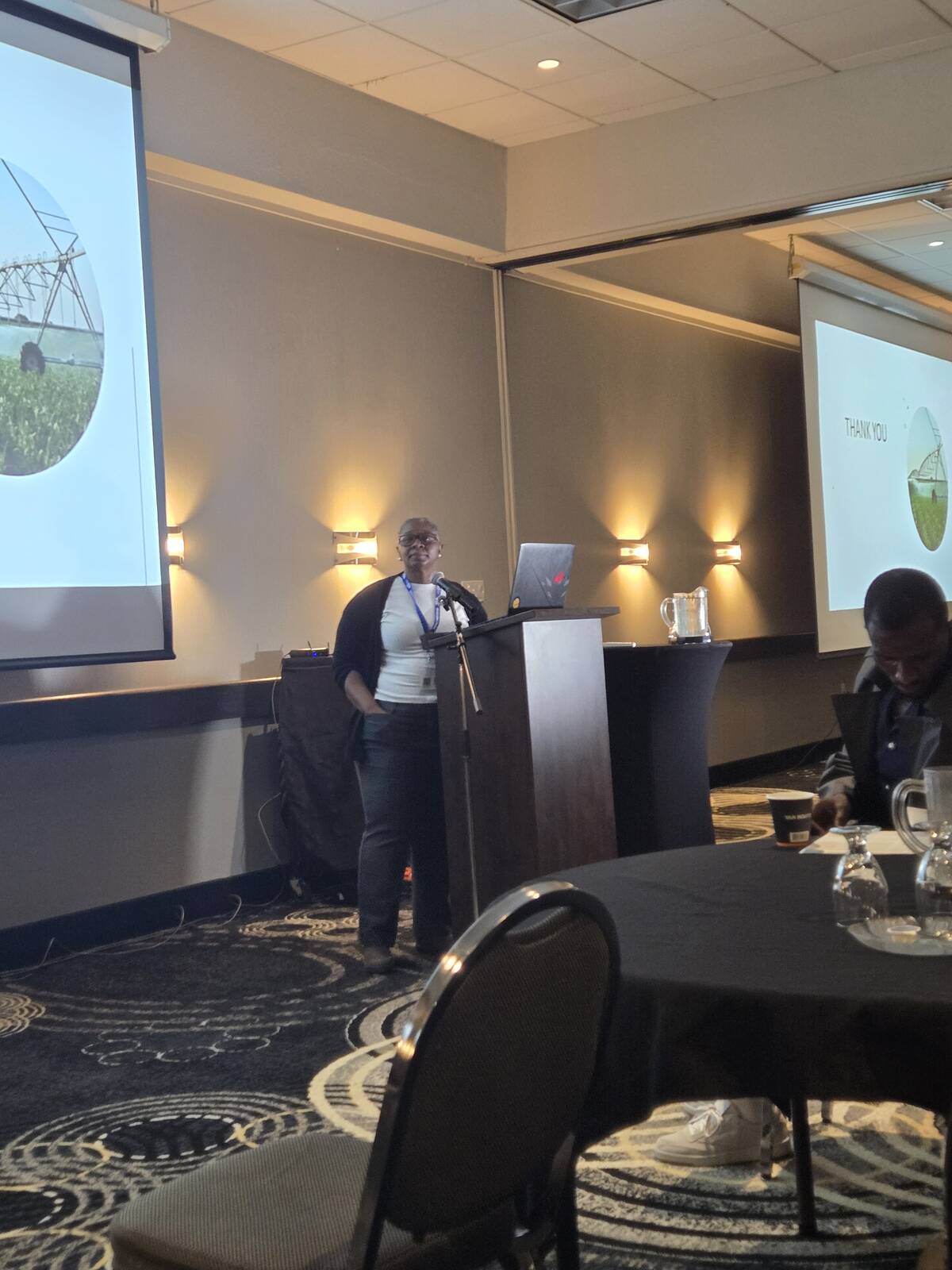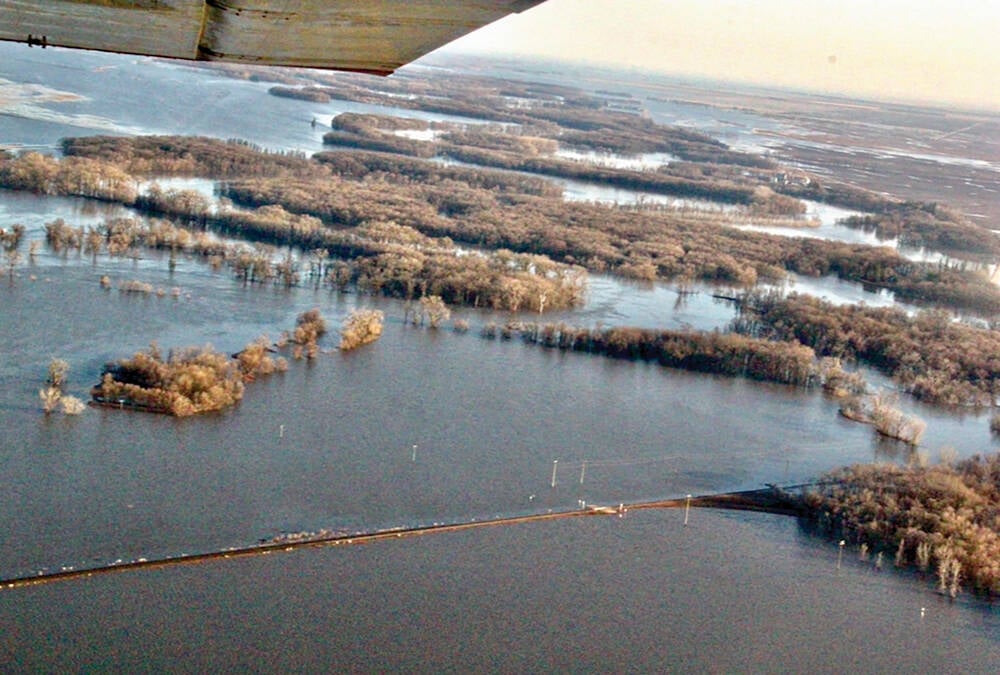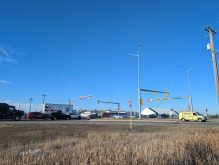Rural and smaller Manitoba municipalities are struggling to plan for floods, droughts and wildfires because they don’t have the staff or money to do it, new research shows.
Glenice Deterville, a researcher with Brandon University’s Rural Development Institute, worked with a team of researchers led by the institute’s director, Wayne Kelly. In a study of 84 municipalities, they found only 13 per cent had climate action plans — even though the province has faced severe flooding, disruptive wildfires and droughts over the past decade.
“Many municipalities have just a handful of staff, often with no specialized climate expertise,” Deterville said. “In the smaller communities, one person might handle everything from economic development to the emergency management, leaving little bandwidth for just the climate planning.”
Read Also

Trade uncertainty, tariffs weigh on Canadian beef sector as market access shifts
Manitoba’s beef cattle producers heard more about the growing uncertainty they face as U.S. tariffs, and shifting trade opportunities, reshape their market.
WHY IT MATTERS: Small and rural Manitoba municipalities lack the staff, money and expertise to develop climate action plans for dealing with floods, droughts and wildfires, with only 13 per cent having formal climate strategies, according to new research.
The gap between urban and rural is stark. Larger centres have staff and budgets to develop formal plans, while smaller municipalities operate with part-time workers and tight budgets, Deterville said at the Canadian Rural Revitalization Foundation Conference on Sept. 25 in Brandon.
Most rural municipalities are tucking climate issues into emergency plans or development documents instead of creating dedicated strategies. Only 13 per cent had community energy plans, and 15 per cent had climate vulnerability plans.
“I was very surprised at the results that we got, especially when we got the spreadsheet with all the data about all the different climate plans,” Deterville said.

Regional approaches vary
The researchers found regional differences. Northern municipalities focused on emergency planning, central Manitoba on flood preparedness and eastern regions on development plans.
Several barriers prevent better planning, Deterville said. First, many municipalities can’t afford the data and technical analysis needed. Provincial and federal funding exists but is often short-term and project-based, making long-term planning difficult.
Politics also plays a role. Municipal leaders often prioritize economic development because it shows results quickly. Climate planning takes years and sometimes looks like duplication of existing emergency plans.
“Municipalities, they are too small to solve climate change alone, but too large to address it solely through hyper local adaptation,” Deterville added.

Collaboration offers hope
The study found one bright spot: some municipalities are pooling resources. Francophone and eastern municipalities have partnered on climate action, showing collective approaches can work — though collaboration remains limited.
The researchers recommend provincial and federal governments fund training and technical staff for municipalities. They also call for stable, long-term funding instead of short-term project money.
“To move forward, we must shift from reactive integration to proactive climate governance,” Deterville said. “That means creating climate specific plans, building local capacity, embedding sustainable development goals in measurable ways, and fostering collaboration across municipalities and with higher levels of government.”

The Association of Manitoba Municipalities (AMM) plans to do a review of recent climate events soon, said the organization’s executive director Denys Volkov.
“Municipalities, in collaboration with their emergency co-ordinators and the Province of Manitoba, will conduct a comprehensive review of the recent wildfire events in Manitoba, consistent with our approach following flood emergencies, to identify lessons learned and enhance our collective capacity for coordinated emergency response moving forward,” Volkov said in a statement to the Co-operator.
The Co-operator contacted multiple Manitoba municipalities for comment but did not receive responses by press time.
















